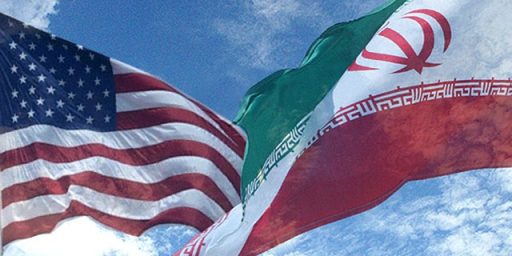Does the Internet Make Revolution Less Necessary?
Joseph Braude argues that, contrary to the conventional wisdom, easy access to the Internet may actually make social revolution less likely. His focus is the Iranian case but its implications are much wider.
The Internet may actually impede political change in Iran as much as it facilitates it. While 100,000 or so Iranians post their passions to the blogosphere, 4,900,000 other users are evidently doing something else. It is well known, for example, that Iranians massively consume Western entertainment–sports media, pop music, and other elements of global culture that the regime in Tehran bans from the public sphere. This injection of hours of hi-speed fun into Iranian homes makes daily life under a theocracy less different from daily life anywhere else–and probably less difficult to tolerate. The advent of Web use in Iran might be less of a net gain for dissidents than many Iran watchers expect because the revolutionary change Iranians want has already arrived. And the truce between the reigning mullahs and their subjects may well have been fortified, rather than undermined, as a result.
[…]
Young Iranians are not unlike young people everywhere, for whom Western civilization’s lighter side is a much greater draw than its intellectual heavyweights. The trouble with the rise of the Internet in Iran is that rather than unite the two groups against the regime, the new medium may instead isolate them from each other. The ranks of Jeffersonian idealists are less likely to be swelled by fans of Jefferson Airplane and “The Jeffersons” if the latter crowd can at last enjoy its new media risk-free–without sticking their necks out in a political movement inspired by the former. As far as the shallow side of youth culture is concerned, the cause of reclaiming Iran’s public space from its self-appointed guardians of public virtue–who ban hand-holding in parks and foreign films from movie houses–is less urgent in the twenty-first century than in the twentieth: Internet dating, movie downloads, and other gifts of the global village have effectively stocked private space with countless Western trimmings.
A similar phenomenon can be observed in other countries; and it isn’t always a bad thing. Sometimes the Internet’s role as a pressure valve can serve a valuable social purpose. Take Israel, where the Al-Aqsa Intifada, from 2000 to the present, has coincided with substantial growth in Internet use. As a telecom analyst during the first three years of the conflict, I asked Israeli Internet service providers to account for their outstanding profits. They posited that, in part, Israeli families preferred to linger less in public, where suicide bombers struck, and used Web access to enrich life at home. For many Israelis, the Internet made war with Hamas and the Al-Aqsa Martyrs more tolerable–thereby helping the country to weather the worst days of the terrorist campaign.
But if the Internet played a role in counteracting the Islamist agenda in Israel, it has probably been a blessing to Islamists in Iran: that is, a boon to the status quo. The Iranian government seems to have figured out how to use the medium to its advantage: Over the past four years, the regime’s strategy of social control over the Internet has switched from sweeping security crackdowns to the more subtle practice of technological filtration, accompanied by the periodic jailing of some bloggers. No other Muslim country, to my knowledge, has gone through a similar evolution. Back in May 2001, Tehran police shut down more than 400 cyber cafés in advance of the country’s June elections. Four years later, the government has replaced such clumsy measures with more targeted efforts against specific kinds of Internet use. According to OpenNet Initiative, a collaborative partnership among Harvard Law School, the University of Toronto, and the University of Cambridge, the regime has adopted “one of the world’s most substantial Internet censorship regimes.” And it’s what the government is–and isn’t–censoring that’s particularly noteworthy: “Currently, Iran’s filtering focuses on Iran-related, and particularly Farsi-language, content. Non-Iran specific sites, such as news, human rights, and foreign government pages, are subject to less filtering, though pornography, sex, gay, and some proxy and circumvention Web sites are subject to censorship with varying degrees of effort.” In other words, the sites that could really hurt the government–those maintained by Iranian political dissidents–are heavily censored. By contrast, foreign sites that allow Iranians to participate at a distance in Western culture are less likely to be blocked.
The vast majority of people are incredibly risk averse. Even Americans, steeped in a culture of rugged individualism and with one of the least repressive governments in the history of mankind, are mostly passive players in politics. Braude’s observations, therefore, hold up to the common sense test.
By allowing its subjects access to all but the most dangerous (from the regime’s perspective) parts of the Internet, the government is acting shrewdly. While there may well be a large number of people hungering to taste that forbidden fruit, the number of them willing to die to do so is likely small indeed.




